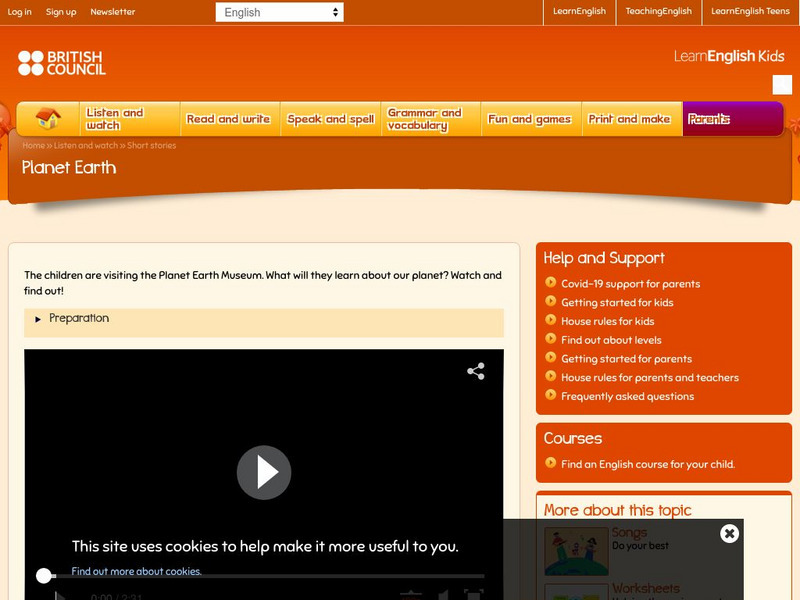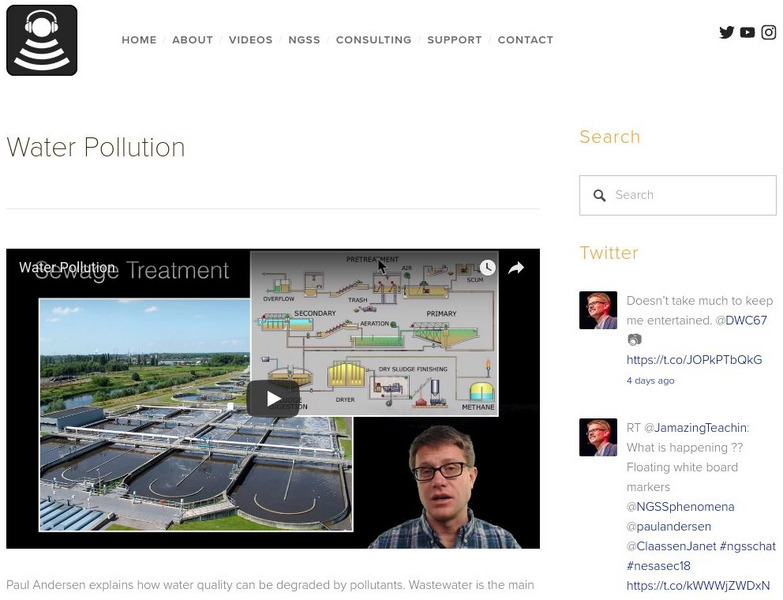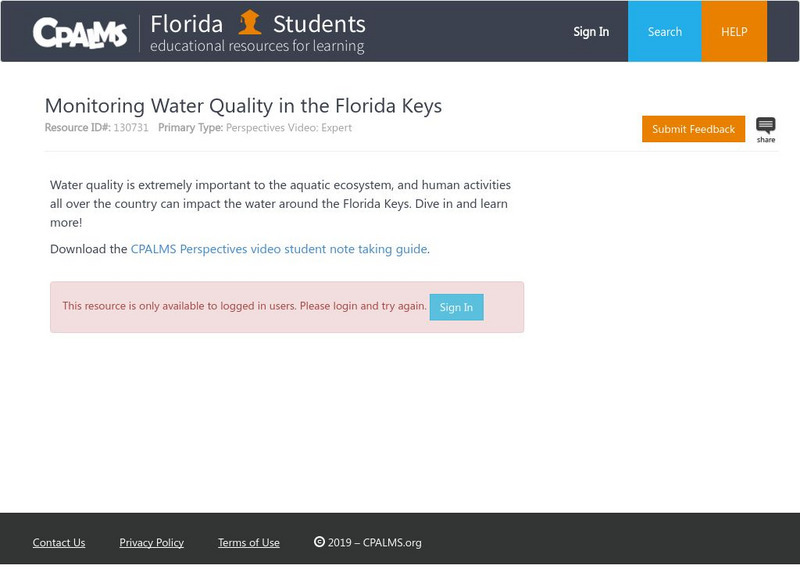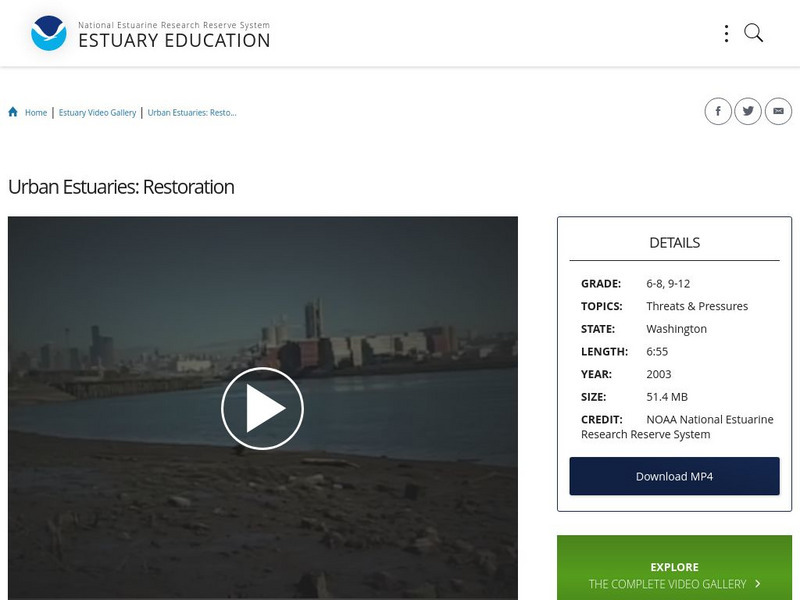PBS
Pbs Learning Media: People of the Arctic
This video segment adapted from the National Film Board of Canada explores how the Inuit people have adapted their traditions and ways of life to changing environmental realities. The video features archival footage and interviews in...
PBS
Pbs Learning Media: Farm Solutions to Water Pollution
In this video from Common Ground and Cleaner Water, Tribby Vice, a Kentucky farmer, talks about the changes he has made on his farm to protect the water quality of the stream running through his property and the watershed in which he...
PBS
Pbs Learning Media: River Rewilding: Hester Dendy Installation
In this video, a high school teacher and her students construct and install a Hester-Dendy sampler to collect macroinvertebrates. Learn how macro invertebrates can be an indicator of water quality. [3:03]
PBS
Pbs Learning Media: River Rewilding: Macro Identification
A video demonstrating how to use macro invertebrates to explore water quality.Follow a high school class on their journey to figure out the water quality in their area. [1:55]
PBS
Pbs Learning Media: Crash Course Ecology: Pollution
Hank talks about the last major way humans are impacting the environment: pollution. Pollution takes many forms - from the simplest piece of litter to the more complex endocrine distruptors - and ultimately, humans are responsible for it...
British Council
British Council: Learn English Kids: Planet Earth
Take a trip to the Planet Earth Museum to visit the different zones on earth and how they are affected by pollution. Included is a printable activity to reinforce the learning.
PBS
Pbs Learning Media: Liquid Assets: How Is a Watershed Polluted?
The urban and rural activities of our complex social system aimed toward comfort and progress also have harmful side effects. This segment from a WPSU documentary Liquid Assets describes how the water resources of one city are suffering...
PBS
Pbs Learning Media: Urban Solutions to Water Pollution
In this video segment from Louisville Life, high school students in Louisville, Kentucky describe the benefits of creating rain gardens as a solution to non-point source water pollution. [2:17]
PBS
Pbs: Trash on the Spin Cycle
A video showing the garbage that Jean-Michel Cousteau collected on their "Voyage to Kure". Video describes where the garbage is found, where it comes from, and why it is there. There is also a page dedicated to educator resources. [3:51]
Museum of Science
Ei E: Water, Water Everywhere: Designing Water Filters Lesson 3
Students test a variety of filter materials to see how well they remove particles and color from contaminated water. [10:26]
Bozeman Science
Bozeman Science: Water Pollution
Paul Andersen explains how water quality can be degraded by pollutants. Wastewater is the main source of water pollution and can be measured using the BOD (biochemical oxygen demand). Dead zones, cultural eutrophication, disease, and...
National Science Foundation
National Science Foundation: Sustainability: Water Baltimore's Urban Streams
A scientist discusses her work studying the travel times of pollutants in waterways around Baltimore's Chesapeake Bay, which is on the brink of an environmental crisis. Her research team is trying to understand how this urban water cycle...
Minute Earth
Minute Earth: Ocean Confetti
Plastic is an important and durable material. However, because it is so inexpensive and easy to make, it is creating a big problem for the world's oceans. In this video you will learn how when the sun breaks down our plastic debris, it...
CPALMS
Florida State University Cpalms: Florida Students: Monitoring Water Quality in the Florida Keys
Exploring the characteristics of water quality in the Florida Keys. Includes information about how other areas may also affect the Keys.
NOAA
Noaa: Estuary Education: Urban Estuaries: Restoration
Students and citizen groups seek to restore and reclaim damaged, changed, or polluted estuaries. [6:52]
NOAA
Noaa: Estuary Education: Combined Sewer Overflow
A quick overview of how a combined sewer overflow system works, and why heavy rains can be bad for estuaries. [1:42]









